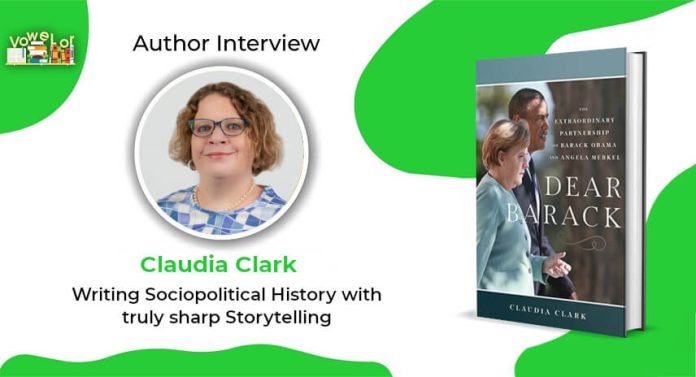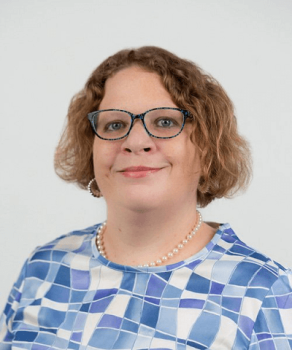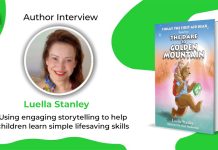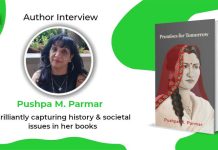
The past few decades saw some really strong leaders across the world. And, contemporary political and historical biographies commonly portray just the good achievements. Author Claudia Clark, who wrote Dear Barack, decided to take a new path.
In her book, she meticulously describes all the good and the bad that was there in the extraordinary political relationship between ex-US President – Barack Obama and ex-Chancellor of Germany – Angela Merkel.
While promoting ‘Dear Barack’, Claudia talked to us on a variety of topics starting from her personal life, her writing journey, her upcoming books, and much more. Before we dive into her interesting answers, let us first know a little more about the author.
About the Author: Claudia Clark

Claudia Clark is an author, activist, speaker, and keen observer of political dynamics in the United States. She brings a wealth of experience and insight to her writing. She published her debut book ‘Dear Barack’ in 2021 which meticulously showcases the highs and lows of the extraordinary partnership between Barack Obama and Angela Merkel.
With a background in political science and a deep passion for exploring the nuances of power and governance, Clark’s work reflects a profound understanding of the political landscape.
In 2017, Clark and her husband moved from California to Germany. Claudia served as the national Get Out the Vote (GOTV) coordinator for the Democrats Abroad Germany chapter during 2019-20. Her academic pursuits have led her to acquire advanced degrees, specializing in social work, women’s history, and labor studies.
Tell us about your family, kids, and parents.
I grew up with a single mother in Lansing Michigan. My mother was a gifted linguist and majored in French in college. She joined the peace corps and taught English as a 2nd language before I was born and lived in Africa until she became gravely ill with malaria and was sent back to the United States.
Upon returning to the States, she had difficulty finding a teaching job, so she returned to graduate school where she obtained her Master’s Degree in Library Science and worked as a librarian the rest of her life.
My mother was a free thinker, and advocate for social justice and human rights. As a child, she took me on vacation to tour some of the Plantations in the Southern United States. My mother wanted me to see these plantations and how they had been built off the backs of slaves and people who had been forced to come to the United States against their will and were treated like mere property.
Similarly, when we visited Germany for the first time in 1990, she made me visit a concentration camp—against my protest, she gave me the “This is part of history whether we like it or not, and we need to know about it” lecture. These trips were filtered in between the usual vacations to Disneyworld and Niagara Falls.
I met my husband when we were in high school (but we were NOT high school sweethearts) –we began to date the summer between our freshman and sophomore years of college.
I was attending college at Michigan State University in Lansing, Michigan, and he was attending college at California Institute of Technology in Pasadena, California.
We married the summer after we graduated from college in 1995, and I moved to California with him. We made the San Francisco Bay Area our home until we moved to Germany in September 2017.
I am a feminist and very firmly believed that a woman’s identity should not be tied to having children. I knew from a very early age that I did not want children for a variety of reasons: I wanted my freedom, the world was already overpopulated, etc.
However, I am an avid animal lover—I love animals more than most people. Hence, my family always consisted of my husband, and at least one (usually 2 pets)—currently 2 dogs, and me.
When and where were you born and bought up?
I was born in Kalamazoo, Michigan in March 1973. I was 2 when my mom got a job in Muskegon, on the shores of Lake Michigan and we moved there where we lived until I was 10.
When I was 10 my mom got a job at the library at Michigan State University and we moved to Lansing, the state capital, where I lived until I finished college in 1995 at 22, then I married and moved to California.
What were you like at school? Any childhood memory you would like to share?
My childhood was very painful, and I do not like to talk too much about it. In school, I was always an outsider. I never fit in any group—I was “too dumb” for the honors students, “too smart” for the normal students, unathletic, and not particularly attractive.
Hence, I spent my youth just trying to fit into some kind of group and was never successful. My grades never reflected how hard I worked in school, and school (especially math) was very difficult for me. I once had an algebra teacher tell me I was the dumbest student he had ever had in 20 years of teaching.
It was not until I was in graduate school that I was tested and diagnosed with 2 severe learning disabilities, which explained the discrepancy in how I worked with my performance on exams.
What are your educational/professional qualifications?
I have a BA from Michigan State University Public Policy and History, an MA from the University of Illinois Champaign-Urbana in Labor and Industrial Relations, an MA in history from San Jose State University, and a Master of Social Work from the University of Michigan. It is a long and complicated story of how that came about—especially for someone who hated school as much as I did.
What is your biggest achievement till today?
My biggest achievement is having Dear Barack published in both English and German. I was an unknown author and I managed to write a book about 2 of the most powerful people in the world.
Which writers inspire you?
I tend to like authors by historians, and journalists such as David Remnick, Doris Kearns Goodwin, Ben Rhodes, and Kati Matron.
Writing is stressful at times. How do you relax your mind?
I travel, I spend time with my dogs, and I walk.
What is your favourite motivational phrase?
Favorite motivational phrase: Well behaved women seldom make history” by Laurel Thatcher
What advice would you give to your younger self?
To live a little, and not to work so hard, and be so serious.
What books do you like to read personally? What are you reading currently?
I tend to prefer nonfiction and biographies. I am currently reading a book about New Zealand’s former Prime Minister, Jacinda Ardern by Cynthia Kennedy Henzel.
If you could have been the original author of any book, what would it have been and why?
I was the original author of the book I most wanted to be—the only thing I would change, is I wish I could have gotten firsthand access to President Obama and Chancellor Merkel and spoken directly to them for stories and insights on my book.
What made you decide to sit down and actually start writing?
There were a series of events that led me to begin writing I think the most telling was when Trump refused to shake Chancellor Merkel’s hand when she visited him in the U.S. for the 1st time. At that point, I wanted to write a book contrasting their relationship with that she had had with President Obama.
Do you have a special time to write or how is your day structured?
I spend the morning researching, then between lunch and dinner I actually write, and after dinner, I reach out to people for interviews, answer emails, etc.
What is the reason you write for; is it for the readers, yourself, or some other thing?
I write because I believe I have a story that the world should hear—and nobody has told it, and so I do because I think it is important for the world to know.
About Your Book: Dear Barack – The Extraordinary Partnership of Barack Obama and Angela Merkel

Dear Barack, written by Claudia Clark, is a thought-provoking and timely book that dives into the impact and legacy of former President Barack Obama. Through a collection of captivating essays, Clark takes a close look at Obama’s presidency, celebrating his achievements while also examining the areas where his administration faced challenges.
With meticulous research and insightful analysis, the book delves into policy decisions, societal issues, and the broader implications of Obama’s leadership.
Dear Barack encourages readers to reflect on the complexities of political power, racial dynamics, and the pursuit of social progress in today’s America. It’s a compelling read that sparks introspection and invites meaningful conversations.
What genre is your book? What draws you to this genre?
Non/Fiction and History. I am a four-generation political activist, so family history and general interest in the subject matter draws me to that genre.
Why did you feel the need for sharing this amazing story of the camaraderie between the two global leaders?
I was growing concerned about the isolationist rhetoric anti-NATO rhetoric I heard from world leaders—first with Brexit, then with the 2016 presidential election after Trump was elected. Whether we like it or not, we live in a globalized world and now more than ever it is imperative that world leaders work and trust one another. Obama and Merkel’s relationship took it a step further—genuine friendship.
What makes ‘Dear Barack’ stand out in this genre?
Dear Barack stands out in this genre because it is generally a positive and inspirational book. Unfortunately, political books are about disagreements, problems, and challenges, and only show the negative sides to politicians and politics.
Obama and Merkel had their share of problems and disagreements, and I discuss those as well as the highlights of their friendship and partnership.
Overall, the book illustrates that it is possible for two very different politicians with sometimes opposing political views to work together so successfully and put differences aside for the overall well-being of not just their nations, but the world.
What should a reader expect from ‘Dear Barack’?
One will read the highs and lows of Obama and Merkel’s eight-year working relationship. Additionally, one will get a biography of Obama and Merkel from their childhoods to their rises to power, and a good look at the similarities and differences they had in their approaches to solving problems.
The book intricately documents behind-the-scenes of events of international importance that took place during the tenure of Barack Obama and Angela Merkel. What was the hardest & the easiest thing to write this book?
Because I had so much respect for Obama, Chapter 8 which described what happened when the world learned that Obama had secretly wiretapped Merkel’s personal cell phone was particularly difficult for me.
Obama was wrong—I make no excuse or apology for his behavior. It was senseless and it could have permanently destroyed the relationship between not just Obama and Merkel, but the U.S. and Germany as well.
As a historian, it is important to illustrate as much of the full picture as one can—the good as well as the bad. As disappointing as it was to learn this and write about it, it would have been irresponsible not to include it.
Any special experience about ‘Dear Barack’ that you would like to share.
The motivation for writing the book came from Chapter 13 (the final press conference between the two) Writing that chapter was particularly emotional for me—I’d often get teary-eyed when working on it, and even today I have a hard time reading that chapter without shedding a tear or two.
Future Plans
What are your ambitions for your writing career?
I plan to write one more book—and I think that is all the energy I have. Writing a book is the “easy” part, but getting it published is a totally different story, and I don’t have the ambition to do this continuously. I had sworn off writing another book altogether because I was so worn out after writing Dear Barack, but I grew inspired to write one more book on a vacation I took last year.
Are you working on your new project? What will be your next book about?
I have been obsessed with Berlin and the Cold War since I first visited the city in 1990 as a 17-year-old girl. My family and I came to Berlin—10 months after the wall had fallen and it impacted me in ways I cannot describe.
Looking around at the area that had been the former East Berlin, I could visually see the difference between a free country/free city and a former dictatorship. In the West, there were multiple shops, stores, restaurants, and other businesses—all vibrant and colorful.
On the other hand, the former East Berlin had very few buildings and businesses, and what was there was drab, gray, and lacking life. I always thought about writing a book about the Berlin Wall but trying to get an angle that hadn’t been done a million times before proved to be a challenge.
However, last spring I was on vacation in Belfast, Northern Ireland, and I noticed the city had been divided by “peace walls” from the struggles of the IRA in the 197s0/80s.
So I am in the process of researching and writing a book comparing the lives of the Northern Irish separated by these peace walls with the Eastern Germans separated by the Berlin Wall during the Cold War.
What does success mean to you as an Author?
Having others read my book and compliment me on how well written and researched are important, but I think piquing someone’s interest in the topic at hand that they want to read/learn more about it is the biggest success.
What are your views on self-publishing versus the traditional publishing route?
I haven’t self-published, so I cannot speak on personal experience, but I will consider it for my next book. Traditional publishers are more concerned with selling books that is their primary focus—not on the merit of the story. Furthermore, they insist authors have all these followers on social media because they assume those will translate to sales, and that is not always the case.
One learning that you’d like to pass on to young debut authors.
Whether you like it or not, you are going to have to be a salesperson—the ultimate sales of the book depends on you, so be prepared for that. I am not a salesperson and that component of writing the book was the hardest thing for me to grasp.
It bothers me enough that if I had known that before I wrote my book, I may not have done it. Hopefully, if people realize that ahead of time, it won’t be such a shock and authors can handle that better than I could.








